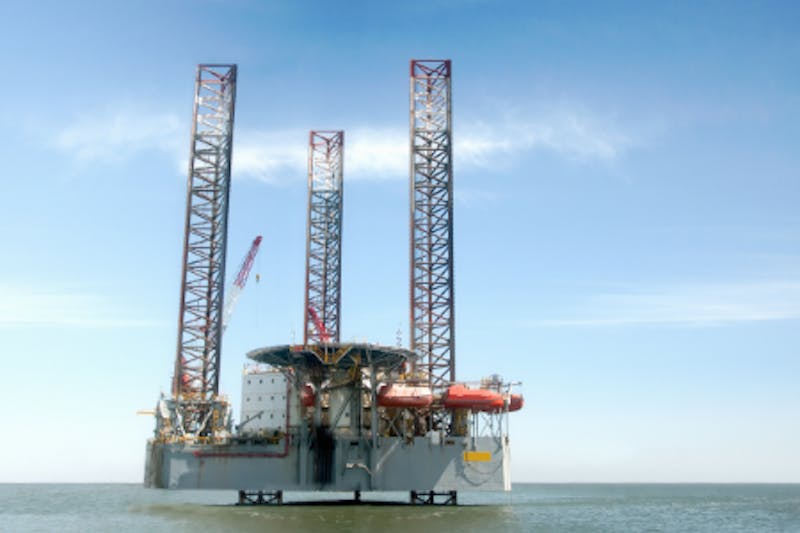
If you work on or around the ocean, your occupation is considered “off-shore.” Off-shore jobs are crucial to our world economy but unfortunately come with significant risk. You’ll face dangerous equipment malfunctions, harsh weather conditions, and the unpredictable nature of the sea. Poor training and unsafe work practices can also increase your risk. Since off-shore accidents occur off the mainland, they aren’t subject to typical personal injury laws. In fact, maritime laws exist specifically for these occupations. That’s why it’s important to hire an attorney who specializes in maritime injury claims. Lucky for you, Davis Law Group knows the ins and outs of off-shore injury accident compensation.
Common Off-Shore Accidents
Though this isn’t at all a complete list, these are the most common off-shore accident scenarios we encounter in our practice:
Oil Platform
Also known as off-shore drilling rigs, oil platforms are where workers extract and process petroleum and natural gas. Risks include falling objects, large swinging cables, raised loads, unsecured ladders, wet stairs, slippery catwalks, and fires.
Rigger
Riggers move large heavy objects with the assistance of machinery. They work with dangerous and highly flammable substances, rough seas, long hours, and subpar safety measures.
Shipyard
Shipyard employees have some of the highest injury rates. Since they build, dismantle, and maintain ships, they’ll be exposed to hazardous chemicals and substances. They also use dangerous equipment and move heavy objects, putting them at risk for physical harm.
Commercial Fishing
Commercial fishers regularly face treacherous ocean conditions. As the waves rock the boat, the seaman can fall and endure serious head and back injuries.
Spud Barges
Spud barges are marine construction work platforms. Falling structures are the biggest risk for workers. Accidents typically occur because of poor training or lack of proper operating procedures.
Common Off-Shore Injuries
When you encounter an off-shore job accident, you may experience one of the following injuries:
Head Injury
A serious head injury could lead to a minor concussion, a traumatic brain injury, or vision loss. These injuries can have lasting impacts on a person’s cognitive or neurological function.
Back or Neck Injury
When a worker suffers a back or neck injury, they’ll endure pain and reduced performance. If there’s an injury to the spinal cord, a worker may become paralyzed.
Amputation
Serious injuries to the limbs may result in full or partial amputation. This will obviously affect work status and overall quality of life.
Burns
Those that work with chemicals and flammable materials may sustain life-threatening burns.
Electrocution
Maritime workers often operate electrical machinery. Since they are surrounded by water, they could easily be electrocuted if something goes wrong.
Hearing Loss
Some boats are exceedingly loud and can cause hearing loss after years of continuous exposure.
Emotional Distress
Long hours, lack of sleep, and high-stress environments can all lead to emotional distress. If a worker suffered a traumatic injury, they may also experience PTSD.
Death
Though you may not think of it as an injury, death is a very real risk for many off-shore employees. In this case, the worker’s family will submit the accident claim.
How Do You Know if You Qualify for Off-Shore Injury Compensation?
Off-shore jobs naturally come with risk and you’re entitled to compensation for many on-the-job injuries. In many cases, you’ll need to prove negligence on the part of your employer. This may include unsafe work practices and/or faulty equipment. Depending on your specific circumstances, your accident claim likely falls under one of the following maritime laws:
Jones Act
Also known as the Merchant Marine Act, this law covers seamen or those who work on ships for at least 30% of their time. This includes captains, masters, and crew. Under the Jones Act, a seaman can claim compensation for a workplace injury if the employer is negligent.
Longshore Act and Harbor Workers Compensation (LHWCA)
Those who don’t qualify as seaman can file a claim under the federal Longshore Act and Harbor Workers Compensation Act. This includes maritime employees who work with ships but don’t necessarily operate on the seas. If you work on a shipyard, oil rig, gas platform, or harbor, you can use this act to obtain financial compensation after an injury.
Outer Continental Shelf Lands Act (OCSLA)
If you suffer an injury while working in the Outer Continental Shelf in U.S. jurisdiction, you can file a lawsuit under this act.
Death on the High Seas Act (DOHSA)
When an off-shore employee dies on the job, their spouse and dependents may qualify for compensation under the Death on the High Seas Act.
Trust Davis Law Group With Your Off-Shore Injury Accident Claim
Whether you’re a commercial fisherman, oil rig worker, or shipyard employee, you brave an uncertain future. We appreciate you taking this risk for the betterment of our society; the least we can do is represent you in an off-shore injury accident claim. Fighting for justice and protection when accidents happen is necessary. Our off-shore injury lawyers recognize the need to seek workers’ compensation for employees who have experienced carelessness or negligence off-shore. Call the maritime law experts at David Law Group and get the justice you deserve for your off-shore injury.

